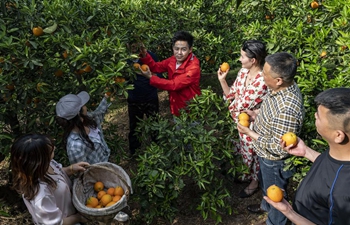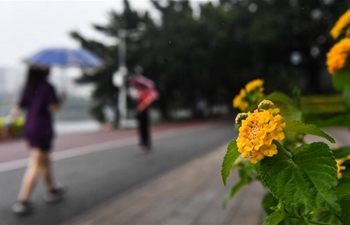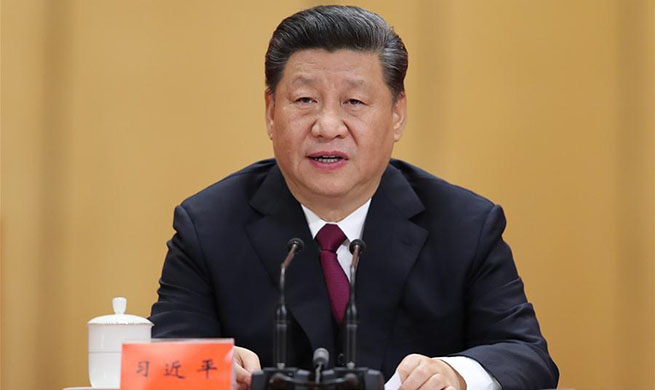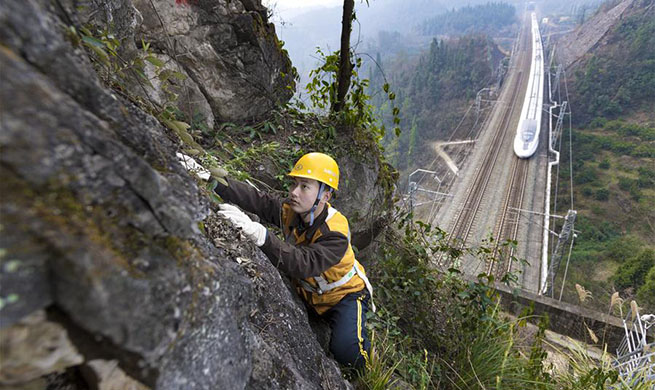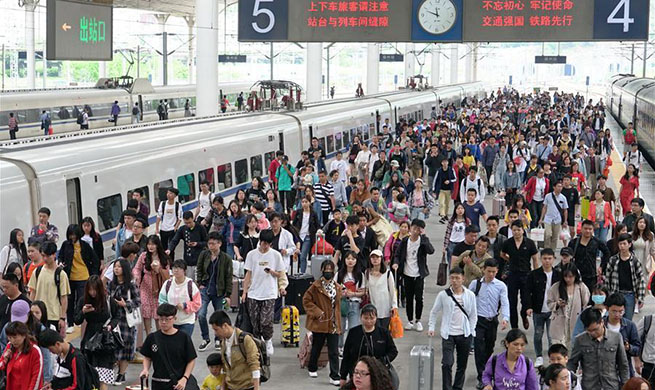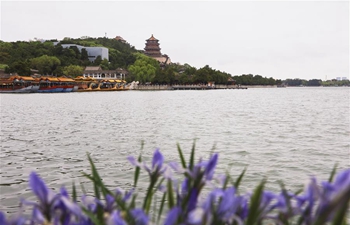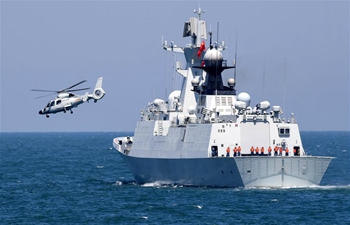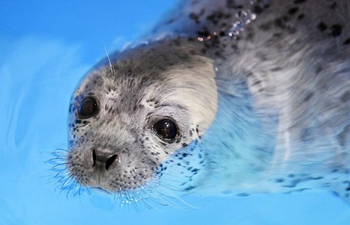by Burak Akinci
ANKARA, May 4 (Xinhua) -- Until the 1980s, Turkey was proud of being one of few self-sufficient countries in agriculture, a key pillar of domestic economy, feeding its populations with fertile lands, but now it relies on imports and the recession has made things worse.
The Turkish government is expected to unveil a comprehensive agricultural plan for the next 25 years aiming to provide some relief amid a dramatic decline of production and workforce.
"Turkey's roadmap for the next 25-30 years is being prepared," Turkish Agriculture and Forestry Ministry said recently in an economic summit, adding that the plan will be unveiled soon, without giving a precise date amid growing concerns for the sector.
The minister emphasized that agriculture is as important as the defense sector, and the country should create a vision for solving structural problems in agriculture.
According to experts, the strong growth Turkey enjoyed last decade before a recession at the end of 2018 following a currency meltdown, had a serious impact on the country's agricultural production because the growth was based largely on consumer spending and infrastructure projects.
This has led to a massive population shift with 2 million people leaving their agriculture jobs to move to urban areas. The share of the workforce employed in farming has almost been halved to 15 percent, and massive arable lands have been taken out of cultivation.
Once proud of being self-sufficient in food security, the country now ranks 48th, below Saudi Arabia and Qatar, among 113 states and regions included in the Economist Intelligence Unit's latest Global Food Security Index.
Turks have begun to feel more severe the consequences of dependency on agricultural imports as the economy entered a recession and food prices had risen by more than 30 percent annually by January.
Surveys indicated that the ruling Justice and Development Party lost big cities such as Istanbul and Ankara to the opposition in the March 31 municipal elections because of voters worry about the declining economy and soaring food prices.
"Turkey should immediately encourage farmers by all means possible for local production and not to rely on imports, which is the easiest way but not the best," said Ali Ekber Yildirim, a veteran expert on agriculture, to Xinhua.
Turkey imports quantities of food that it can produce itself, including barley, wheat and cotton. The latest imports include potatoes and onions as prices went skyrocketing, pushing authorities to crack down with inspectors on hoarding and stockpiling these vegetables.
Yildirim has doubts on the expected agriculture plan and argued that the main protagonists, which are farmers, cultivators and their unions or cooperatives, have apparently not been consulted beforehand by the ministry.
"But if there will be an announcement, it should say: In line with a plan we are not supporting imports any more, we will encourage production," Yildirim insisted, adding that such a move would bring back Turkey on the way to recovery in five or six years.
Ozkan Ilham, a cattle farmer from Polatli, located around 70 km south of the capital Ankara, said that "state subsidies are not enough" and Turkey has increased in recent years its live cattle imports from countries such as Argentina and France.
Farmers and agricultural workers in districts, like central Anatolia where agriculture and cattle farming are important, complain of a lack of polices aimed at helping local producers.
Because the Turkish currency dropped around 40 percent in less than a year, the price of fuel oil, seeds, fertilizers and other essential goods went up, reducing even more the already low profit margins, pointed out Ilham.
The central government has announced since the currency crisis a series of ambitious measures to bring Turkey back to a strong growth.
Yildirim also urged authorities to take necessary steps to increase agriculture-related employment, adding that the younger generation prefers the service sector and office-based jobs to farming.
Turkey has become a more urban and modern country in the last three decades, but the cost of this social shift has been reflected in decreasing jobs in agriculture.
"Once a produce is imported, the cultivators shun planting it because they know that there will be less profit, which then causes the prices to rise and bring more imports, a vicious circle that we have to break," added this expert.




